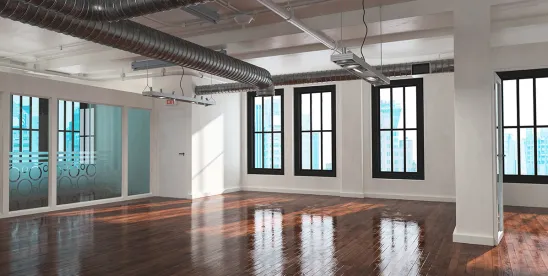On July 14, 2020, the Supreme Court of New Jersey issued an order authorizing several steps to support the resumption of landlord/tenant cases during the COVID-19 crisis. The good news is that the procedures allow for resumption of adjudication. The bad news is that there still could be a delay/lag in getting a tenant out. The following is a brief discussion and some practical pointers for commercial landlords.
County Given Power to Set up Protocols
The July 14th Order requires county court systems to come up with protocols to: (a) mediate all pending landlord tenant cases; and (b) set up trial procedures in the event cases do not settle. This allows the counties to set up a best practice system for themselves, as some counties may have a higher volume of commercial cases rather than others.
For the first part of the protocols, counties are quickly implementing procedures to meet the mediation requirements of the Order. Some counties have already started scheduling mediation over ZOOM or other video conferencing applications. However, irrespective of differences between county approaches, commercial landlords must remember mediation is a voluntary process. Meaning, “it takes two to tango”. There will certainly be many cases where: (a) landlord and tenant will not agree to mediate; and (b) cases where mediation takes places, but a settlement is not reached. The trial procedures will likely be implemented after the mediation protocols are put in place. It may take 60 or more days for trials to resume. As such, commercial landlords for the sake of finality may want to reassess their settlement stance based on this information.
Orders to Show Cause MAY Get a Hearing Date Earlier
This leads to the question of, “Does a landlord has any recourse in the event it needs to proceed with a commercial eviction action in short order?” The July 14th Order answers that question, but the answer creates new questions and uncertainty.
Pursuant to page 2 of the order, a landlord may file an emergent Order to Show Cause application in limited circumstances to seek a prompt trial. However, the basis of that landlord/tenant action cannot be just nonpayment of rent.[1]
As most commercial landlord know, an Order to Show Cause may get you to court sooner, but it can also be costlier than proceeding in the ordinary course. Further, all applications for an Order to Show Cause will be reviewed and will proceed to a trial only if the court determines that an actual emergency exists. Examples of such emergencies, include, but are not limited to, documented violence, criminal activity, or other health and safety concerns.
The July 14, 2020 Order also acknowledges and provides that an eviction may proceed in the “interest of justice” as provided by Executive Order 106 (issued March 19, 2020). What the “interest of justice” means is open to interpretation.
Executive Order No. 106 reads, in pertinent part:
While eviction and foreclosure proceedings may be initiated or continued during the time this Order is in effect, enforcement of all judgments for possession, warrants of removal, and writs of possession shall be stayed while this Order is in effect, unless the court determines on its own motion or motion of the parties that enforcement is necessary in the interest of justice. This Order does not affect any schedule of rent that is due.
Dichotomy Created by the Orders
The general rules governing an eviction hearing, July 14, 2020 Order and Executive Order No. 106, create an interesting dichotomy: (a) to promptly move a commercial landlord’s case to trial, the landlord must meet a high bar and show that the eviction trial should proceed due to egregious circumstances such as “documented violence, criminal activity, or other health and safety concerns.” If that standard is proved through an Order to Show Cause application, the court should then schedule a trial. (b) Once a trial is scheduled, there is nothing in the July 14th Order that would raise the bar in terms of proofs required to prevail. Presumably, Landlord could support the substance of the eviction by showing non-payment of rent, alone. The Court would also be hard pressed not to issue a warrant of removal if landlord obtains a judgment of possession at the trial. However, the net issue is enforcement of that warrant. Meaning how quickly are court officers proceeding with lockouts? That is an unknown issue and should be reviewed by counsel prior to proceeding so that a commercial landlord understands the time constraints on the same.
Accordingly, it is conceivable that a landlord meets the high bar needed to schedule a trial, but then is further delayed because the trial is simply scheduled and takes several more weeks to complete. Or, there could be an enforcement delay due to the court officers’ backlog. Although there is no precedent governing the Order to Show Cause proceeding and subsequent trial, it would be logical if the Court scheduled the eviction trial on the return date of the Order to Show Cause Application to expedite the processing of trials that need to take place on an emergent basis.
All commercial landlords proceeding under these new Orders, should consult counsel prior to any filing. Understanding the timing and pros and cons of this new system is keys to maximizing the effectiveness of your actions.
[1] The Order does provide that in the case of the death of the tenant, a landlord may file such an action for non-payment of rent.



 />i
/>i
